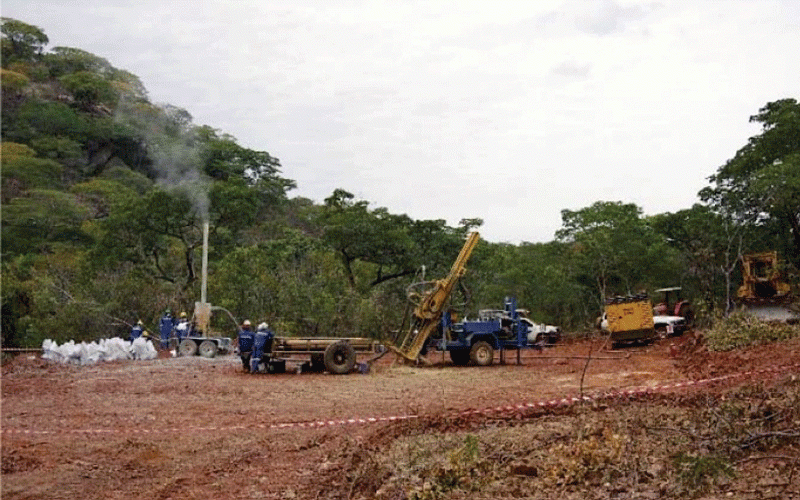
THE Victoria Falls Stock Exchange (VFEX)-listed nickel explorer, miner, smelter and refinery, Bindura Nickel Corporation (BNC), highlighted in its recently released annual report that it will be expediting the shifting of its mining strategy from a low-volume, high-grade strategy to a high-volume, low-grade one.
Given the global commodities price boom that was necessitated by the outbreak of the Covid-19 pandemic, and was sustained by supply side shocks that were stirred by the geopolitics tension in Europe, BNC deemed it fit to change their strategy.
Nickel prices in particular also benefitted from the rollout of more electric vehicles, in which the commodity is a major component. This strategy change for BNC is also supported by the confirmed availability of low-grade at Trojan Mine.
In the mining and exploration business, usually to avoid too much volatility in the top line and to maintain smooth reported earnings, in periods of soaring commodity prices, the mining companies choose to explore low-grade ores.
Low-grade ores usually are relatively costlier to explore and mine considering that the volumes will be very high, but can make economic sense to pursue them when the selling prices of the commodity soar above certain prices.
It also follows that when commodity prices tumble, the mining entity can turn to high-grade ore, which requires relatively lower extraction and mining costs to maintain profitability.
In addition, mining the lower-grade tonnes of ore is also more sustainable from a purely operational perspective and helps extend the life of the mine instead of mining the high-grade tonnes of ore.
To hedge against rapid commodity price volatility, commodity suppliers and consumers engage in derivative products called forwards and futures.
- Platinum miners reject BNC refinery
- Simbisa Brands mulls VFEX listing
- Simbisa Brands listing boost for VFEX
- Simbisa unveils broad VFEX listing roadmap
Keep Reading
Essentially with these derivatives, both parties get to lock in today, the price at which they will transact at, some time in the future.
To the extent that these contracts are renewed, the change in prices of commodity is not as much as in the spot market and it also explains why the change in nickel prices does not always translate into a change in revenue for the company.
BNC, which is also a subsidiary of Kuvimba Mining House (KMH) reported a 33% decrease in the top line as this strategy shift is being implemented.
The decrease in turnover to US$49,5 million was a direct result of reduced nickel concentrate sales volume, despite the increase in nickel prices.
In FY23, BNC produced 3,180 tonnes of nickel concentrates and sold 3,095 tonnes versus 5,082 and 4,720 in FY22, respectively.
The company also recorded a gross loss of US$11 million and a comprehensive loss of US$18 million in FY23. The losses were necessitated by the ballooning cost of sales from US$51 million in FY22 to US$60 million albeit reduced turnover.
Alternative to grid electricity given the rampant power outages was mentioned as a cost driver in the financial year. Net exchange losses of US$2,5 million also pushed the company into the negative earnings territory, given the depreciation of the local currency against the greenback.
Given the nature of mining operations, capital expenditure is a critical component of the company’s budgeting. In the year under review, BNC set aside US$8 million for capital expenditure versus US$6 million in the comparable period.
The capital expenditure will be channelled towards replacing the old and outdated underground mining equipment and will be financed via internal resources and bank loans according to the annual report.
Analyst’s comment
Ever since migrating from the Zimbabwe Stock Exchange (ZSE), BNC has not managed to live up to most analysts’ expectations.
As one of the few companies with direct exposure to nickel concentrates production and distribution, anyone who wanted exposure to the upside potential that was expected to sustain on the nickel market would consider BNC shares as an instrument to bring that about.
Notwithstanding the point discussed earlier about the use of derivatives, I opine the company’s share has not mirrored the gains in the nickel market.
In fact, the share price actually lost value with a year-to-date change of -51%. I also opine that the corporate governance risk factor might have played a part in the company’s share price decline considering that the company changed the majority shareholder from Mwana Africa to Asa Resource Group, and from Asa to Sotic International Group before finally to Kuvimba Mining House within a decade.
Considering that electric vehicles are here to stay, and many analysts share the view that nickel prices will remain firm, BNC continues to be an exciting counter to watch out for.
Their strategy change, if expedited could bear results and increase the longevity of mines lifespan, which is positive for the shareholders in the long run.
- Hozheri is an investment analyst with an interest in sharing opinions on capital markets performance, the economy and international trade, among other areas. He holds a B. Com in Finance and is progressing well with the CFA programme. — 0784 707 653 and Rufaro Hozheri is his username for all social media platforms.






